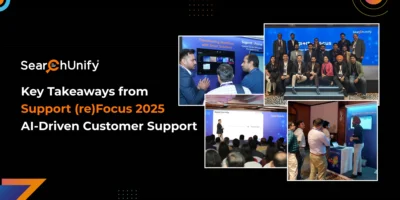
The only true failure is keeping knowledge you could have shared with others to yourself.
~ Baylor Barbee
Team knowledge grows when employees actively and consistently share knowledge within the team. Due to inefficient knowledge sharing, US-based businesses lose around USD 2.7 million to USD 265 million in productivity. This happens when you’re not operating in a knowledge-sharing workplace culture.
Knowledge sharing is beneficial for creativity, innovation, and collaboration.
Roadblocks To Knowledge Sharing
Let’s suppose, you work in a place where ideas are encouraged, challenges are solved together and innovation thrives. That’s not a coincidence. Such an environment comes into existence from the most important key ingredient i.e. Knowledge Sharing.
However, like any great endeavor, the road to success isn’t without challenges. That being said, let’s discuss the barriers to knowledge sharing in detail:
Knowledge Silos
Knowledge silos occur when teams keep information hidden or expertise isolated from one another. While these groups function smoothly on their own, as soon as they collaborate outside their comfort zone, friction emerges.
Knowledge silos are specifically critical in customer support.
For instance, if a support agent is fielding customer complaints for a product defect, but the product team is unaware of the same because the information never leaves the support department. The result would be frustrated customers and missed chances to improve the product. The ripple effect will hurt the company’s reputation and business outcomes.
Breaking down knowledge silos needs intentional strategies like open communication channels, cross-functional teams, and tools that allow knowledge to flow seamlessly between departments.
In short, knowledge silos don’t disappear on their own, companies need to take proactive steps to ensure that information doesn’t stay trapped in silos and the entire organization benefits from collective knowledge.
Knowledge Hoarding
Knowledge hoarding seems rare however it’s more common than you think. Around 47% of digital workers aren’t able to find the information they need to effectively perform their jobs. All because it wasn’t shared with them. For customer support teams, it leads to frustrating customers with slow and incomplete responses.
Suppose you’re a seasoned support agent who knows the ins and outs of the product but keeps the key insights to yourself. It’s not that you don’t want to help but maybe you don’t have the right tools, processes, or methodologies to do so. There might be other reasons too. This is knowledge hoarding.
Fear, competition, and leverage are the three factors behind knowledge hoarding. In some enterprises, employees sense a silent competition for recognition or promotions while others might hold back out of fear of being judged or the idea being dismissed. Then comes the leverage factor, where knowledge is seen as job security. By keeping knowledge to themselves, some employees feel irreplaceable.
In short, knowledge hoarding lies deep in organizational culture. But, how do you break this cycle? By fostering a sense of trust and collaboration, where information is valued, not feared. Only then can customer support agents and knowledge workers thrive in the industry.
Key Strategies To Encourage Knowledge Sharing In Your Organization
Though every company is different, here are a few simple strategies to kick-start the process and drive your team toward success.
Promote A Knowledge Sharing Culture
When Knowledge-sharing culture is entwined into the DNA of your company, business becomes easier. Encourage collaboration among support agents by equipping your team with tools and processes that easily contribute to their expertise and experiences, ensuring that valuable insights don’t remain siloed. This not only boosts team efficiency but also improves customer interactions as agents are empowered with collective knowledge to resolve issues faster and more effectively.
Make Knowledge Sharing and Preserving Easier
Emerging technologies take center stage when it comes to the facilitation and preservation of knowledge. When tools are implemented at an organizational level, knowledge transfer and implementation take place quickly.
For instance: SearchUnify’s Knowbler has transformed knowledge sharing and preservation for Syntellis by streamlining the creation of valuable knowledge articles.
Being the world’s first LLM-powered solution, Knowbler automatically documents case resolutions using pre-defined templates. Knowledge created is stored in the database, making it easier for enterprises like Syntellis to maintain a consistent knowledge base.
That’s how Syntellis improved support outcomes and enhanced their overall customer experience with a seamless knowledge workflow.
- 18% reduction in support cases
- 23% increase in search adoption
- 263% search conversions
Delegate and Define Roles and Responsibilities
Defining and delegating roles and responsibilities improves focus and strengthens your knowledge-sharing culture. When the team knows exactly who’s responsible for capturing, creating, sharing, and maintaining knowledge, it prevents confusion and bottlenecks. Moreover, if you have a solution that helps with updating the knowledge base, overseeing content accuracy, or handling customer queries, that adds brownie points to the knowledge-sharing culture.
Encourage Standardized Knowledge Creation Workflows
Structured and consistent processes are the cornerstone of effective knowledge-sharing processes.
For instance: SearchUnify Knowbler helped Automation Anywhere standardize their knowledge-sharing process amidst the rapid growth by introducing a streamlined workflow for capturing insights and creating content. Agents used pre-defined templates and AI-generated titles to quickly transform case information into well-structured articles.
The results? A 57% surge in knowledge creation and improved support experiences. It helped them reduce creation time, ensuring that the knowledge is relevant and discoverable. Knowbler’s integration with Automation Anywhere’s LLM and customizable prompts allowed for tailored knowledge articles, while its in-depth analytics enabled data-driven decisions to improve content health and strategy.
Motivate and Reward Efforts
Encouraging knowledge sharing is important for a thriving workplace. One of the good practices followed by companies is rewarding employees for knowledge sharing. Using badges and recognition systems to celebrate knowledge-sharing contributions motivates employees. Such initiatives lead to intrinsic motivation and extrinsic rewards. Thus, a balanced approach creates a knowledge-sharing culture where knowledge is valued, celebrated, and continuously encouraged.
Use Solutions Like Knowbler To Centralize Your Knowledge
When a knowledge-sharing culture is promoted, the invisible expertise of different team members comes to the forefront.
Imagine a customer support team struggling with inconsistent case responses and longer resolution times due to a lack of knowledge sharing, open communication, and collaboration. By implementing solutions like Knowbler, teams can centralize knowledge, leverage collective intelligence, and share best practices. It empowers agents to access relevant information quickly, resolve issues efficiently, and deliver exceptional customer experiences.
SearchUnify Knowbler is an intelligent, knowledge-centered customer service product designed to streamline knowledge creation and maintenance. Powered by advanced machine learning algorithms, Generative AI, and Large Language Models (LLMs), Knowbler empowers enterprises to capture, structure, find, reuse, improve, and optimize knowledge seamlessly within their workflows. By integrating directly within their systems, enterprises can enhance their agent productivity, knowledge base quality, customer support, and self-service experiences.
With Knowbler:
- Find Knowledge Instantly: Now, there’s no more wasted time searching for solutions because Knowbler’s powerful search engine helps locate relevant articles in just a few seconds. Happier customers and quick issue resolutions are here to stay.
- Knowledge Reuse at Your Convenience: Sharing expertise with your team is important. Knowbler’s intelligent agents quickly attach relevant articles to their cases to ensure that the entire team benefits from the shared knowledge. This ultimately facilitates collaboration and strengthens your knowledge base.
See how Knowbler helped companies like Automation Anywhere and Syntellis achieve exceptional results.
Request a demo to see how Knowbler can transform your customer service experience.











